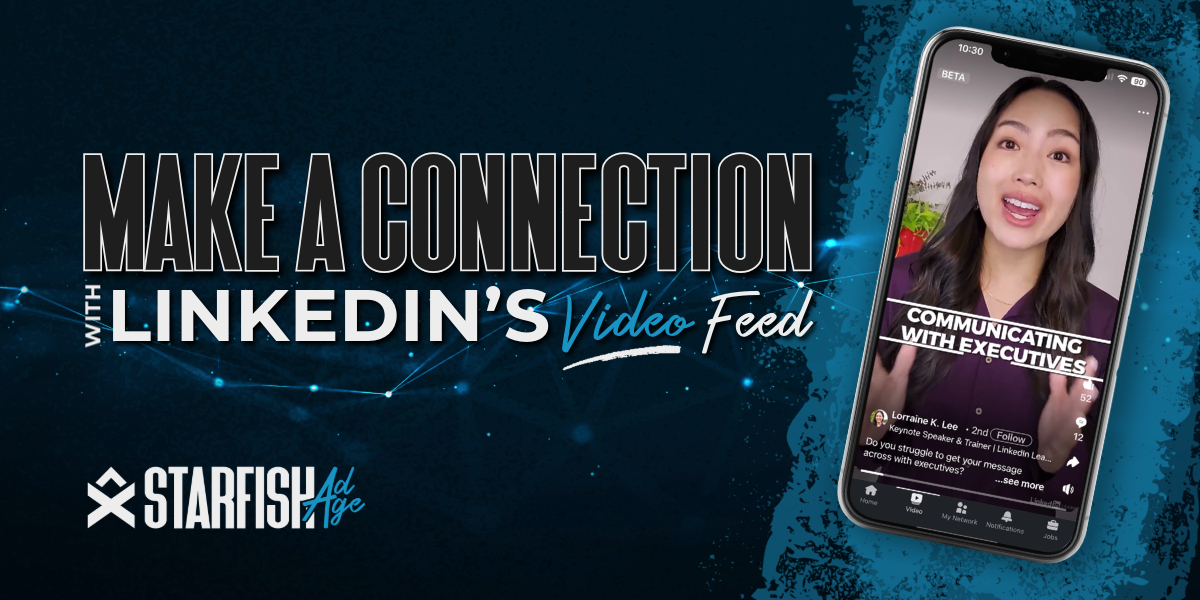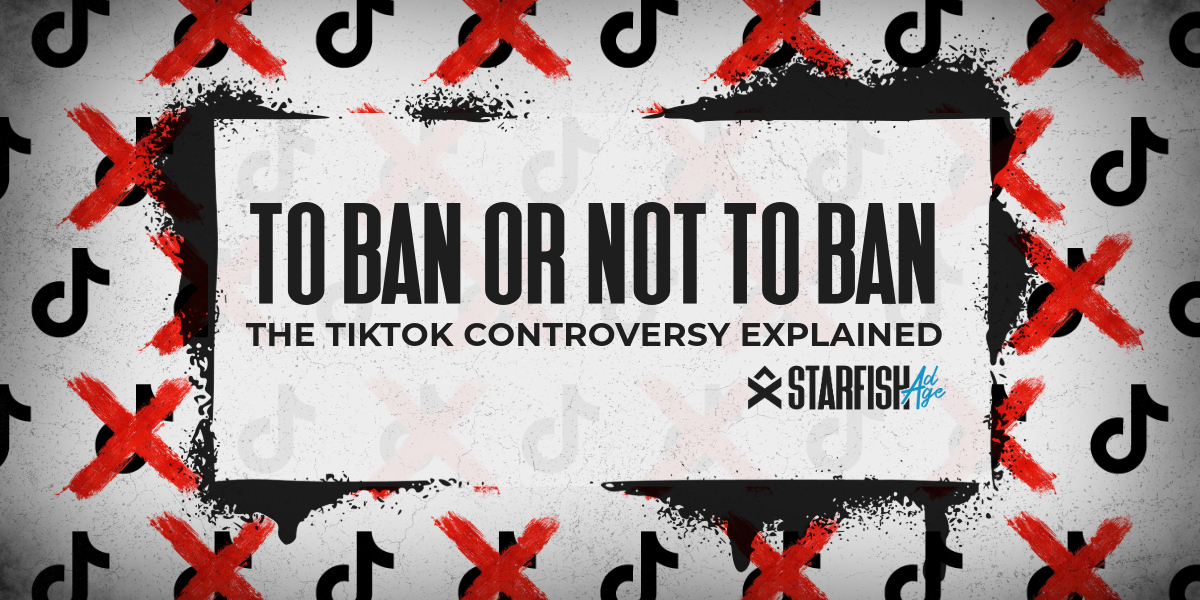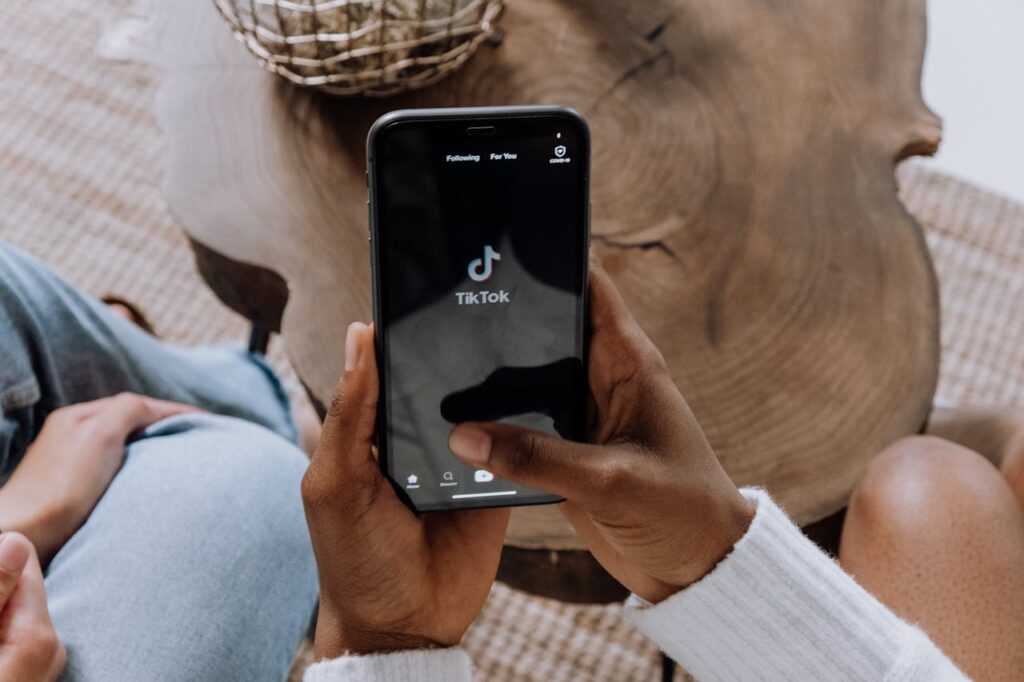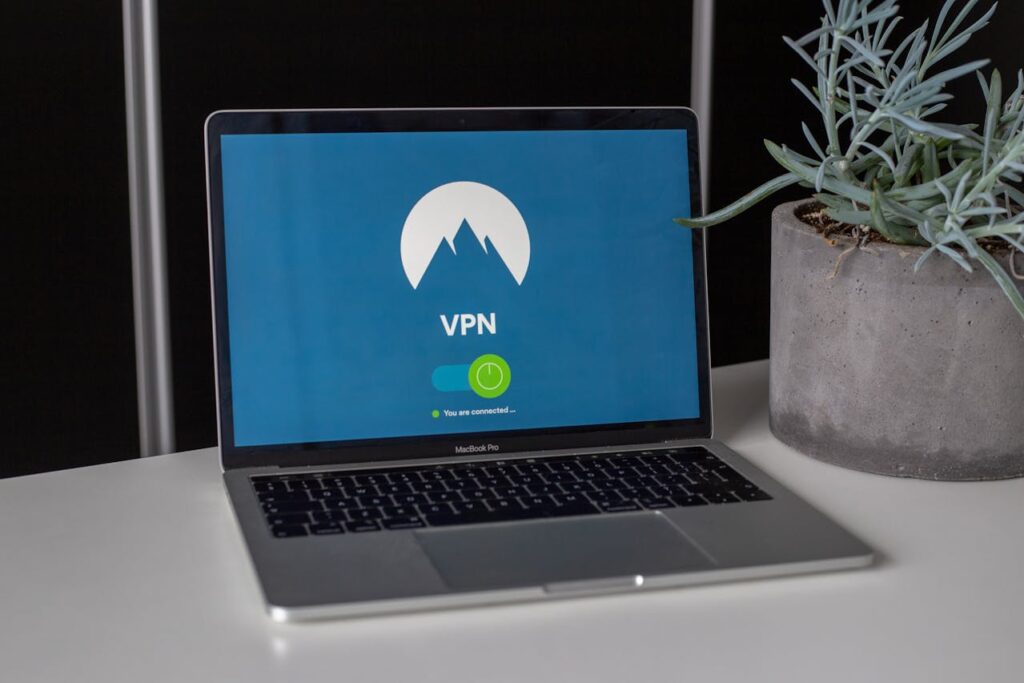
How to Use LinkedIn’s New Video Feed
Use LinkedIn’s new video feed to grow your audience. Learn specs, best practices, and tips for creating engaging posts to boost your visibility on LinkedIn.

It is not probable that there will ever be a total ban of TikTok. However, the platform may have to make some adjustments in the United States. TikTok’s ascent from a quirky, niche app to a dominant force in the global social media landscape is nothing short of remarkable. It began as a platform primarily for dance and lip-sync videos but quickly evolved into a diverse content haven. This transformation was fueled by the app’s highly intuitive and personalized content discovery algorithm.
Unlike other platforms that rely on social networks and follower counts, TikTok uses user engagement and interaction patterns to curate and suggest content, making viral sensations out of ordinary individuals overnight. This democratization of content creation has blurred the lines between celebrity and the average user, creating a more inclusive and accessible platform for creative expression.
TikTok has fundamentally shifted the dynamics of social media engagement and content consumption. Its focus on short, captivating videos has set a new standard for what it means to be engaging online. Traditional platforms are built around text updates, photos, and longer-form videos, often prioritizing content from users’ existing networks.
TikTok, however, has mastered the art of the algorithmic timeline, where content relevance to the user is king. This approach ensures that even the newest users can discover and enjoy viral content from the get-go, making every scroll a potential discovery of something new and exciting.

What sets TikTok users apart is not just the type of content they consume but also how they interact with it. Traditional social media platforms often see engagement in the form of likes, comments, and shares within a user’s network. TikTok has fostered a culture of content creation and interaction that transcends personal networks. Users are encouraged to engage with content from across the globe, regardless of whether they follow the creator.
This universal approach to content sharing and interaction has led to a more dynamic and interconnected global community, where trends spread faster and more organically than ever before. Additionally, TikTok’s feature set, including duets and challenges, encourages users to not only view content but become active participants in its viral culture, further distinguishing it from traditional engagement patterns.
Through these shifts, TikTok has not only changed the way we think about social media but has also raised the bar for what users expect from their personal devices and online experiences. Its rise to mainstream prominence underscores the evolving landscape of digital engagement, where creativity, immediacy, and interactivity reign supreme.
So, TikTok’s been growing like crazy, right? And it’s caught the eye of some bigwigs in the U.S. because 20% of it is owned by its parent company, ByteDance, which is Chinese. Though about 7,000 American ByteDance employees also share ownership in the company.
There’s this worry that ByteDance might be passing on TikTok user information to the Chinese government. That’s got some people in the government thinking about making moves to either get TikTok banned in the U.S. or force the company to sell TikTok to someone in the U.S. to keep the data safe.
Allegedly, the main concern is about privacy and spying. Since about 20% of TikTok’s shareholders are Chinese, people are scared that the Chinese government could get their hands on TikTok’s data and use it for spying or to mess with what people see and do online. Plus, there’s this fear about TikTok censoring content or pushing certain views.
Who’s All Worked Up About It, and Why?
It’s not just the people in suits who are worried about this. Regular TikTok users, who love the app for all the DIY, comedic, and creative videos, don’t want to see it go away. And then there are the tech heads and other big companies watching closely; whatever happens with TikTok could set the stage for new rules and change the game for all sorts of apps and online services. It’s a big deal because it touches everything from enjoying your favorite content to big questions about privacy, power, and who controls what we see and do online.
The big fuss over whether to ban TikTok isn’t just about the app itself; it’s a mix of worries about keeping things private, making sure countries stay safe, and how politics plays into all this. It’s like a giant puzzle where each piece—how secure our data is, what rights we have online, and the big chess game between countries—fits together to show why people are so heated about this issue.
When we chat, share, or like something on social media like TikTok, it seems simple, right? But there’s a bigger picture where countries see apps as tools or threats in their strategies. The fear is that apps owned by companies in countries like China could be used for spying or messing with a country’s vibes, making the debate about TikTok not just tech talk but a matter of national safety.
There have been a few eyebrow-raising moments where social media got tangled up in serious national security stuff. Imagine scenarios where big decisions or events were influenced by information leaked or spread through apps. These real-deal stories help us understand why some people are super cautious about TikTok; it’s about making sure history doesn’t repeat itself in ways that could put a country’s safety on the line.

Alright, so the whole privacy thing is a major part of why TikTok’s under the microscope. It’s all about how the app, and others like it, handle the super personal stuff we share online. Think the same way about the photos, chats, and videos you post. How’s all that sensitive data being kept safe from prying eyes, or worse, getting misused?
Social media platforms, TikTok included, have this massive job of collecting data while keeping it secure. They use some serious tech magic called encryption to turn our data into a secret code when it’s stored or sent over the internet. But when it’s time for the good stuff to be displayed on your screen, they decrypt it, turning it back into something we can understand. It’s a constant game of lock and key to keep our sensitive information safe.
Here’s where things get a bit more tangled. The Chinese government has its playbook when it comes to data privacy rules, which affect internet companies based there, like TikTok’s parent company, ByteDance. There’s the worry that these rules might let the government have a peek at the data if they want to, for reasons like national security. So, the big question is, how do these regulations impact the privacy of users around the globe?
The battle lines between censorship and free expression are constantly redrawn, especially on platforms like TikTok. While some countries employ these platforms to promote creativity and free speech, others use them as tools for censorship and control. For example, in authoritarian regimes, social media content might be heavily monitored and censored to suppress dissent, contrasting sharply with more liberal countries where freedom of speech is more protected and encouraged.
The global landscape of internet censorship varies widely. In countries like China and North Korea, the government exerts tight control over the most internet users, filtering searches, blocking websites, and monitoring online activities to limit the flow of information. Meanwhile, in nations such as the United States and many European countries, there’s a stronger emphasis on safeguarding internet freedom, though debates around misinformation and hate speech highlight the challenges of maintaining this balance.
Civil society groups worldwide, like the Electronic Frontier Foundation (EFF) and Access Now, play pivotal roles in advocating for digital rights and freedom of expression. These organizations fight against internet censorship, campaign for privacy rights, and provide support for individuals targeted for their online activities. Their efforts ensure that the internet remains a space for free and open discourse, challenging attempts by governments or corporations to limit digital freedoms.
The technical and legal frameworks governing the internet and social media platforms like TikTok become increasingly complex. Understanding these mechanisms and laws is crucial for navigating the challenges and opportunities presented by the global digital landscape.
These are the primary technical tools used by governments and internet service providers (ISPs) to control internet content. DNS acts like the internet’s phonebook, translating domain names into IP addresses. By manipulating DNS responses, access to specific websites can be blocked or redirected. Packet filtering examines the data passing through networks, allowing or blocking it based on predefined filters, while IP address blocking prevents the connection between a user and a specific IP address, effectively restricting access to certain websites or services.
VPNs have emerged as a critical tool for circumventing internet censorship, allowing users to encrypt their internet traffic and route it through servers in different countries. This not only secures their data from surveillance but also bypasses content restrictions based on geographic location. VPNs represent a technological countermeasure to state and corporate attempts at controlling what internet users access, embodying the cat-and-mouse game between regulators and digital freedom advocates.
The U.S. has a patchwork of laws and regulations that address various aspects of the internet, including data protection, cybercrime, and the regulation of online content. Notable examples include:
Despite these laws, the U.S. has faced criticism for not having a comprehensive federal data protection law akin to the General Data Protection Regulation (GDPR) in Europe. This absence has led to calls for more robust privacy legislation that can more effectively respond to the challenges posed by social media, cloud computing and big data.
Executive actions, including executive orders and directives, have been used by various administrations to address issues related to social media and cybersecurity. One of the most notable recent examples involves attempts to ban TikTok and WeChat. Citing national security concerns over the Chinese ownership of these apps, the Trump administration issued executive orders in 2020 aiming to prohibit transactions with the apps’ parent companies. However, these attempts faced legal challenges and were ultimately not implemented as initially planned.
These actions highlighted the executive branch’s ability to rapidly respond to perceived threats but also underscored the complexities of regulating global digital platforms within the framework regulatory requirements of U.S. law. The controversies and legal battles surrounding these orders have sparked a broader discussion about the authority of the executive branch to regulate social media, the impact of such regulation on free speech, and the national security implications of foreign-owned platforms.
The ongoing debates and legal challenges related to internet regulation and executive actions in the U.S. point to the need for a more coherent and comprehensive approach to digital governance. This includes potential legislation that more clearly defines the balance between ensuring national security, protecting user privacy, and maintaining the open, innovative nature of the internet. Additionally, there is a growing recognition of the need for international cooperation and frameworks to address the global nature of digital threats and the operations of multinational tech companies.
As technology continues to evolve, the U.S. legal and regulatory landscape will need to adapt to address the new challenges and opportunities presented by social media and the broader digital economy. This will likely involve a combination of updated laws, executive actions, and collaborative efforts with other nations and international bodies to create a safe, secure, and open digital environment.
The future of restricting access to social media and navigating the complexities of digital governance requires a delicate balance.
Finding the right equilibrium between security, privacy, and innovation is paramount. This balancing act involves protecting users from harm while ensuring the freedom to innovate and express, requiring ongoing dialogue among governments, tech companies, civil society, and users.
Concerns center around national security, data privacy, and the potential for misinformation and censorship. With platforms like TikTok having ties to countries with different regulatory environments, there’s fear that user data could be misused or manipulated for geopolitical purposes.
VPNs encrypt users’ internet traffic and reroute it through servers in different locations, masking the user’s real IP address and circumventing geo-restrictions and censorship by making it appear as though the traffic originates from a different country.
Executive orders and legal frameworks can mandate changes in the operation, ownership, or data-handling practices of social media platforms. They can also restrict access to or ban the operation of certain apps, influence content moderation policies, and impact the global strategy of social media companies.
Technologies like blockchain and artificial intelligence offer new ways to encrypt data and to ensure data privacy, content authenticity, and resistance to censorship. However, they also present challenges in terms of regulatory oversight, ethical considerations, and ensuring equitable access to technology.
There is no global consensus on regulating social media platforms, as approaches vary widely based on cultural, political, and legal contexts. Some countries prioritize freedom of expression and innovation, while others impose strict regulations to address concerns over privacy, security, and public morality. The diverse reactions underscore the complexity of balancing free speech, national security, and user protection in the digital age.

Use LinkedIn’s new video feed to grow your audience. Learn specs, best practices, and tips for creating engaging posts to boost your visibility on LinkedIn.

How major social media legal battles in 2024, including Supreme Court rulings and the Kids Online Safety Act, are impacting businesses and digital marketing.

Discover 10 iconic brands like Blockbuster, Kodak, and Toys “R” Us that went extinct because they failed to innovate.

Gen Z Marketing That’s Breaking The Internet: Discover how Gen Z marketers use bold, unpredictable strategies to capture attention.

Learn how AI tools improve customer experience, streamline operations, optimize marketing, and reduce operational costs.
All Rights Reserved | Starfish Ad Age LLC | 2023 | Privacy Policy